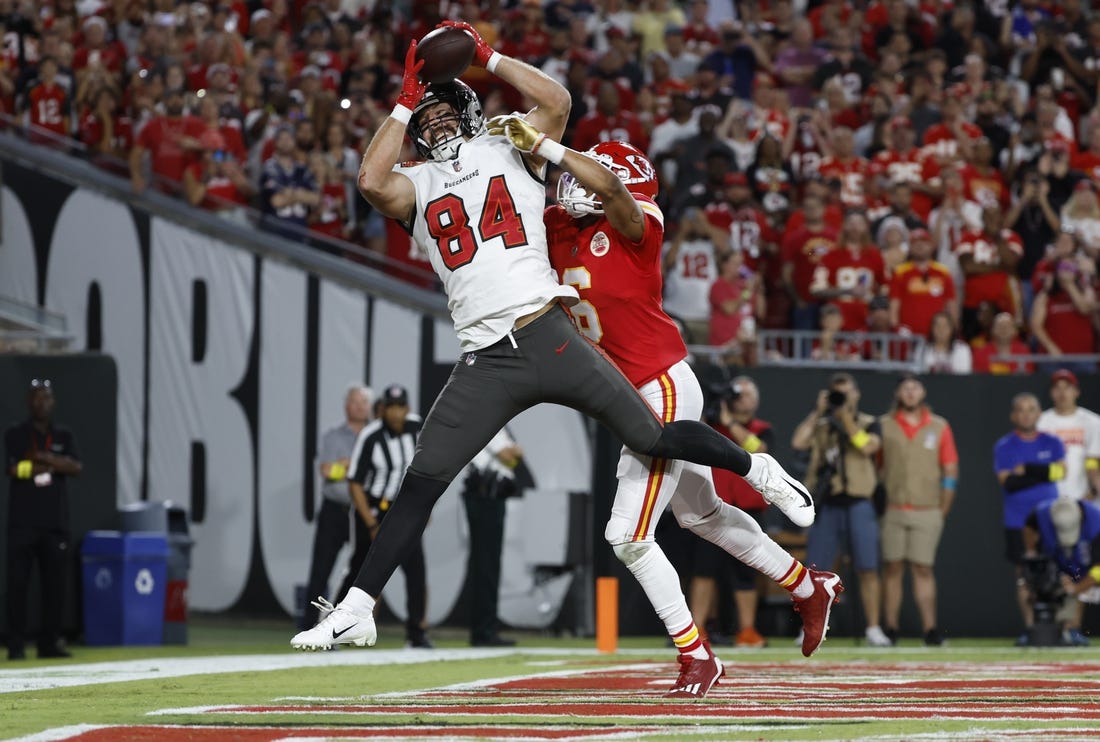Tampa Bay Buccaneers tight end Cameron Brate suffered a concussion in Sunday night’s game against the Kansas City Chiefs, but he initially remained in the game after the hit that caused it.
Bucs coach Todd Bowles told reporters Monday what happened behind the scenes, saying when Brate first came off the field, he said he hurt his shoulder and did not display concussion symptoms.
“He went on the sideline. He complained of shoulder discomfort, nothing about his head,” Bowles said. “He was checked out three times. You just say, ‘Give him a minute.’ Nothing came up. He went back in until the end of the half. At halftime, he started having symptoms, but they were delayed. He started complaining about that. We tested him, he’s in the protocol and we kept him out the rest of the game.”
Brate was slow to get up after his head hit teammate Chris Godwin’s shoulder late in the second quarter. As he jogged off the field, he ran into one of the game officials, but it has not been confirmed if that was related to disorientation that could have resulted from a concussion or simply happened in the rush to get off the field.
Tampa Bay eventually ruled him out during the third quarter.
Brate’s situation drew criticism in the wake of Miami Dolphins quarterback Tua Tagovailoa suffering a concussion and a neck injury in a game last Thursday, just four days after he was cleared to return from concussion protocol. The NFLPA fired the unaffiliated neurologist who cleared Tagovailoa to play in Week 3.
Former Tampa Bay coach Tony Dungy called out the Brate decision during NBC Sports’ halftime show (before Brate was ruled out) and said the NFL’s protocol was a “broken system.”
“He complained about his shoulder, not his head,” Bowles said Monday. “You can’t see a neurologist or talk about concussions if you only complained about the shoulder.”
–Field Level Media

